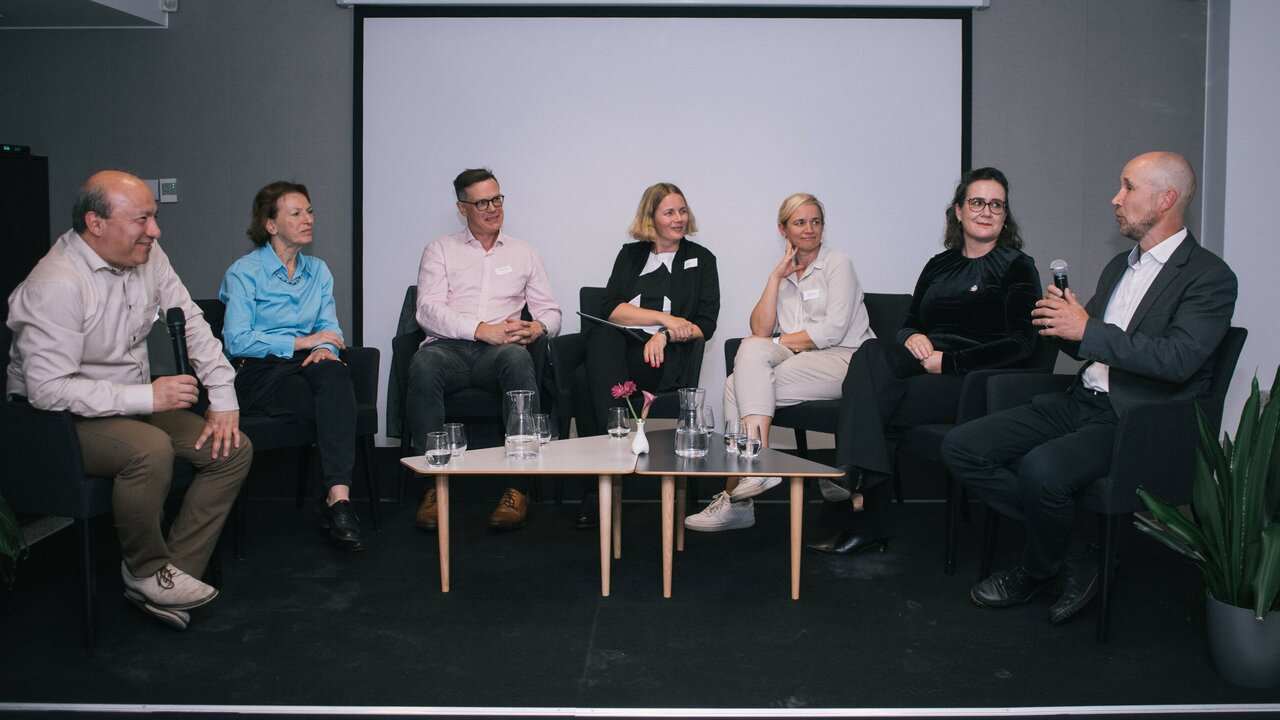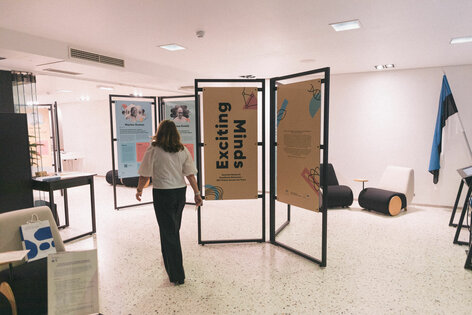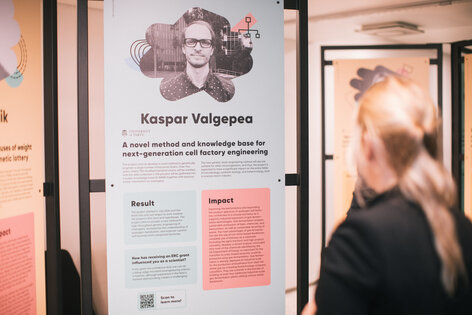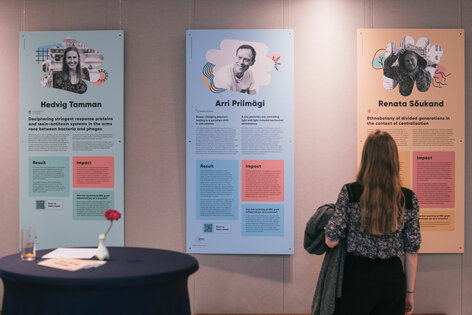Exhibition of top Estonian scientists opens in Brussels

The exhibition, open in Brussels, showcases the cutting-edge research being done in Estonia and the researchers who have been awarded European Research Council (ERC) grants for their research. In addition, you can read about the ERC projects of eleven outstanding researchers from the University of Tartu.
On the occasion of the 12th anniversary of the Estonian Research Council’s Brussels Office, a high-level seminar was organised and a travelling exhibition "Estonian Research Excellence Showcase: ERC Grants Across the Years“ was opened at the Permanent Representation of Estonia to the European Union (Rue Guimard 11/13). The aim of the exhibition is to showcase the high-level Estonian researchers who are pioneers in their respective fields and who have received ERC grants as pivotal milestones in their academic careers. The exhibition will be constantly updated as new Estonian ERC grant recipients are added.

ERC grants support innovative frontier research in various disciplines. From the University of Tartu, currently represented at the exhibition are Professor of Nanomedicine Tambet Teesalu, Professor of Geoinformatics Evelyn Uuemaa, Professor of Evolutionary Plant Ecology Marina Semchenko, Professor of Information Systems Marlon Dumas, Professor of Molecular Systems Biology Mart Loog, Professor of Physical Geography and Landscape Ecology Ülo Mander, Associate Professor in Genetics Hedvig Tamman, Professor of Behavioural Genetics Uku Vainik, Professor of Functional Ecology Carlos Pérez Carmona, Professor of Gas Fermentation Kaspar Valgepea and Professor of International Law Lauri Mälksoo.
In a discussion at the anniversary seminar, researchers shared their unique experiences, highlighting the impact of ERC funding on their academic careers and research projects. The discussion was attended by President of the European Research Council Maria Leptin and prominent Estonian grant recipients: Associate Professor in Analytical Chemistry and Archaeology Ester Oras, Evelyn Uuemaa and Tambet Teesalu from the University of Tartu, Jaan-Olle Andressoofrom the University of Helsinki and Tiina Roose from the University of Southampton. The discussion was moderated by Marlon Dumas who is also an ERC grantee.

The panellists emphasised that ERC grants are very important for Estonian researchers, especially given the nature of the grant, which gives researchers the freedom to choose what, how and where they do their research. So far, 29 Estonian researchers have been awarded ERC grants, which is a remarkable achievement.
Marlon Dumas pointed out that although Estonia submits a large number of ERC grant applications every year, only a few receive a positive response, and therefore the full potential of Estonian researchers has certainly not yet been realised. Maria Leptin stressed that there is no such thing as an ‘ERC-type’ researcher – rather, it is about applicants who do not give up after a negative decision, but who persevere.
The panellists agreed that the characteristic persistence of Estonians is a valuable trait in this context. Ester Oras shared her personal experience, noting that she also did not succeed in securing a grant on her first attempt, yet she believes that a scientist who recognises the importance of their own work must be persistent. She also stressed the critical role of universities in assisting researchers with their application preparations. Evelyn Uuemaa acknowledged that at one point, she considered a career shift from science to industry, as she did not see herself as the “typical grant applicant”, but obtaining the grant was crucial in her journey.

Tiina Roose noted that ERC grants are like a quality label – only the best get it, and in a very competitive environment. Receiving a grant can also act as a catalyst for a career change – for example, Tambet Teesalu came back to Estonia from the USA thanks to the grant. In addition, it helps open the door to new collaborative research opportunities. Jaan-Olle Andressoo emphasised that future efforts should focus even more on knowledge transfer to ensure that science and innovation continue to progress hand in hand.
The discussion also highlighted that some of the most innovative ideas often come from young researchers who may lack experience in applying for grants. Therefore, it is particularly important for universities to assist their researchers in developing the necessary skills for securing funding. Regarding the development of new researchers, it is essential to provide young scientists with a clear career model to encourage more of them to choose a scientific career path.
See also the event gallery (photos taken by Lucas Boitquin).






